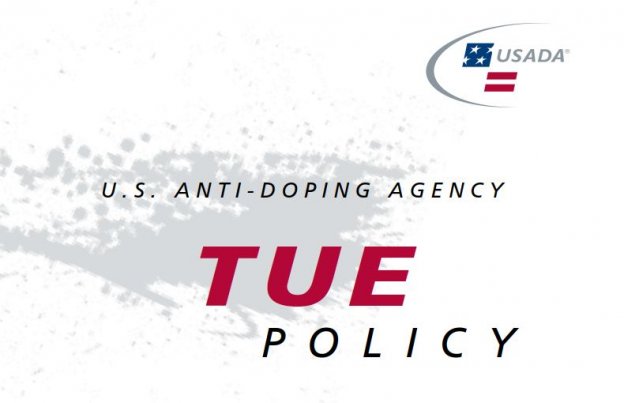The United States Anti-Doping Agency (USADA) has decided to make it easier for some athletes to use anabolic steroids. The only catch is that those athletes must be losers. You really have to suck and then USADA will consider allowing you to use steroids. And if you continue to train hard and start to win some races, USADA will presumably take your steroids away from you.
I’m serious. This is not a joke.
In its latest incident of unfair and arbitrary stupidity, the United States Anti-Doping Agency (USADA) has created a new therapeutic use exemption (TUE) specifically for recreational and masters athletes. The new Recreational Competitor TUE (RCTUE) policy was quietly added by USADA in June 2015.
Most people didn’t know about the RCTUEs until Wall Street Journal writer Frederick Dreier published an article titled “Prescription Steroids Get a Quiet Exemption” on April 22, 2016.
USADA added the RCTUE last summer but really didn’t want anyone to know about it. According to the WSJ, it was afraid there would be a rush of recreational and masters athletes who would take advantage of the RCTUE and gain permission to use steroids.
USADA emphasized that the RCTUE is not available to competitive athletes but only to “non-competitive” athletes.
“Out of fairness to those non-competitive athletes, we put in place a process that allows for them to compete while still requiring a fair and reasonable review of each recreational athlete’s medical situation,” USADA said in a statement to the Wall Street Journal.
In fact, the USADA restrictions discriminate against athletes with any significant amount of talent. It has created two classes of athletes – elite athletes who win and amateur athletes who lose. Apparently, USADA thinks giving elite athletes with a therapeutic need for testosterone replacement therapy (TRT) gives them an unfair competitive advantage. Whereas, giving recreational athletes with a therapeutic need for TRT no such advantage.
Nothing could more arbitrary, non-sensical and unfair. If an athlete has a medical need for testosterone, then the athlete should be granted a TUE regardless of how well they perform.
Of course, USADA is attempting to avoid controversy. If they make it easier for athletes to use steroids (testosterone) and the athletes start winning, USADA will look bad. So USADA has decided to create stringent rules the explicitly disqualify athletes who are high-performers or likely to be high-performance athletes.
According to the current USADA TUE policy, athletes who have been successful at any point in their lifetime are ineligible for the RCTUE. The RCTUE is only for athletes who have never won anything. An athlete must meet the following criteria at a bare minimum:
- has not been in the USADA Registered Testing Pool or the Registered Testing Pool of an International Federation;
- has not represented the United States in an International Event;
- has not won a national or regional level Competition in any sport;
- has not finished first, second or third in an age group category of any Event sanctioned by an NGB in which fifty (50) or more competitors have been entered in that category in the sport in which they are presently competing;
- has not won more than five hundred dollars (500.00 USD) in prize money in an Event in the sport in which they are presently competing; and
- is not classified as a professional Athlete.
On the positive side, the RCTUE will make it easier for the majority of men with a documented therapeutic need for TRT to compete in drug-tested events without fear of a ridiculous ban.
Those athletes can thank TRT doctor Sloan Teeple for fighting USADA for giving recreational and masters athletes the right to use steroids.
Teeple expressed his satisfaction with USADA’s compromise.
“When I wrote my book with my wife, I was hoping that it would help other men who suffered in the same way that I had suffered. My fight to use the testosterone treatment that I need and still be able to compete as a recreational athlete was also directed, at least in part, to helping other recreational athletes facing the same dilemma that I faced. While USADA’s new RCTUE process is complicated, I think it strikes the correct balance, and thank USADA for this common-sense solution to a difficult dilemma. I would also like to thank my lawyers – Kevin Isern and Howard Jacobs – for their tireless and invaluable assistance in this important fight.”
Nonetheless, we feel the new RCTUE is yet another example of USADA’s unfair and arbitrary practices.

